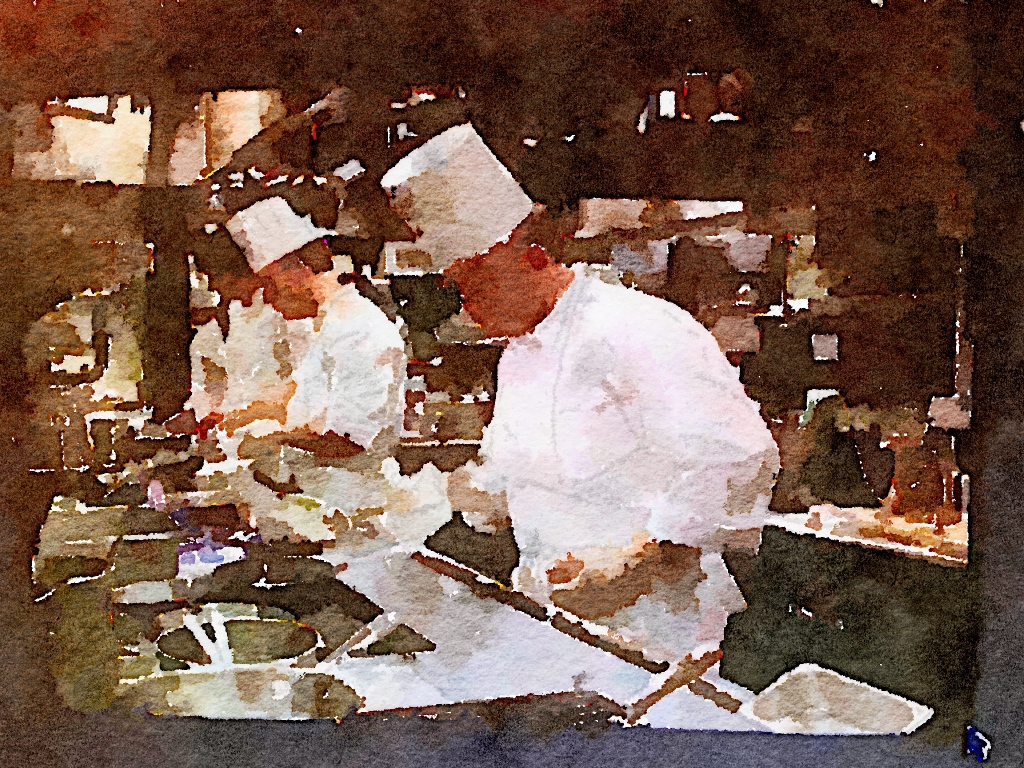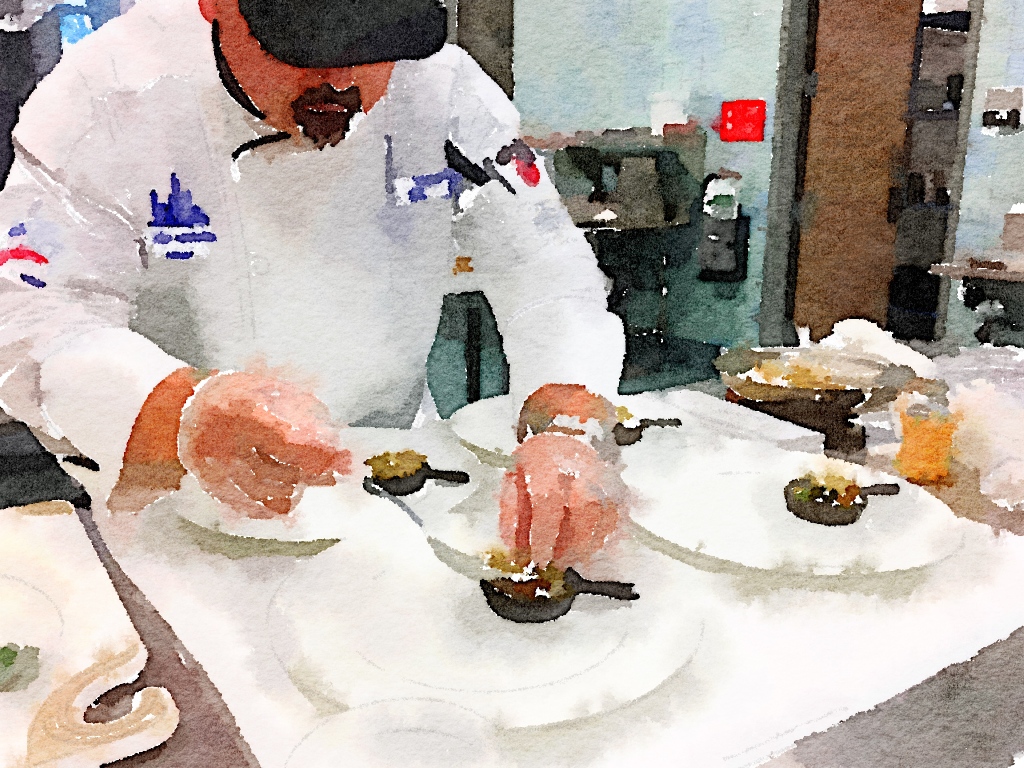
Create a Team Built to Win
When Coach Vince Lombardi said: “Winning isn’t everything – it’s the only thing”, he was not inferring that winning at all costs justifies the means, not was he inferring that somehow “losing” was the end of all hope – he was simply stating that the attitude of excellence and the goals that define it should always be a driving force within a person’s attitude or a teams mantra. How you play the game in the process of winning is critical, as is the sportsmanship that allows people to get past defeat with honor and grace while taking the time to positively recognize those who administered that defeat. Standing tall and looking forward to the next chance to win, knowing what needs improvement, how to rise above mistakes, and supporting each other in the process is at the core of a winning team – even in defeat.
Well-run organizations – in this case a kitchen, are built to win. They hire, train, critique, support, celebrate, and rally behind the members of the team that has been built and push each individual to contribute his or her best – always. This is what great organizations and great teams do.
Kitchens, like athletic teams, share in a common structure. This structure is based on the understanding that the team is only as strong as its weakest link and that greatness is achieved with each team member understands his or her strengths and weaknesses as well as those of the other members of the organization. Great teams turn to those with certain strengths to rise up and show the way and build up those with identified weaknesses so that together they can float their boat even on the most challenging seas.
Each day in a kitchen there are ample opportunities for a “win”. Getting that dish just right, controlling costs, managing inventory, meeting budgetary goals, topping yesterdays customer count, clearing the rail of tickets without any re-fires, a complement from customers, top ratings on Trip Advisor or Yelp, or a positive local restaurant review can all be viewed as a competitive opportunity. Each of these goals requires that all players on your kitchen team be tuned into their role and self-motivate to hit the mark of expectation that the chef, manager, or owner has set. Success will not occur if the weight of success falls solely on one individual or even a part of the kitchen team. United in purpose is the call to arms.

The spirit of competition must be felt by every individual in an organization and by the team as a whole. In this manner – competition helps to drive people to always improve. The Japanese refer to this as Kaizen.
Michael Jordan is probably one of the most vivid examples of a person who would breathe that competitive spirit constantly. He said:
“You have competition every day because you set such high standards for yourself that you have to go out every day and live up to that.”
Michael did not need to be pushed to strive for excellence – it was in his DNA. As a result, he became the taskmaster for the team, the standard setter that drove the expectation of others. His unwillingness to accept anything less than best effort became the core philosophy of those around him. He was tough, but focused on something that would benefit everyone. He could play a support role when the team was clicking on all cylinders or he could take individual control when the rest of the team had lost its steam. It was his competitiveness with himself that kept the team boat afloat.
Charlie Trotter, in many chefs’ minds, defined what fine dining would become in America. His renowned restaurant: “Trotter’s” was the benchmark for others to follow for nearly 25 years. The food was groundbreaking, the service was impeccable, the restaurant was polished and smooth on the eye, and the creativity was beyond parallel. It was his competitiveness and the expectation of the same from his staff that made the restaurant what it was. He was a tough person to work for and his expectations were not for the faint of heart.
His focus is clear in this quote:
“I have always looked at it this way: If you strive like crazy for perfection – an all-out assault on total perfection – at the very least you will hit a high level of excellence, and then you might be able to sleep at night.”
It is this internal competitiveness that pushed Trotter to not only create a truly great restaurant, but more importantly to help those who worked for and with him to carry this spirit of winning to their own careers, and in some cases – their own future restaurants.
Never known as a pleasant person to work for – Steve Jobs – founder of Apple, was a consummate perfectionist, the driving force behind and in front of a company that always maintained a mission of excellence and ease of use. Creating the next great product was secondary to doing so as the company that created the benchmark of excellence with regard to that product. His focus on every detail from the user interface to how beautiful the circuit boards in an electronic device were (something that the average user would never see), to the packaging and style of everything associated with the company became the core belief and guiding measurement for every employee in the company. Some could not live up to the expectation and some would thrive in the environment where winning meant admiration, respect, coolness, and desire to own. Although he is no longer with us – Apple continues to move forward with the underlying question: “What would Steve think?”
Steve once stated:
“For you to sleep well at night – the aesthetic, the quality, has to be carried all the way through.”
He was in competition with himself to always produce a product that was great – this same objective became the calling card of Apple – that internal competition that drives them to always determine how to make things better – how to win.
“When you’re a carpenter making a beautiful chest of drawers, you’re not going to use a piece of plywood on the back, even though it faces the wall and nobody will ever see it. You’ll know it’s there, so you’re going to use a beautiful piece of wood on the back.”
-Steve Jobs
This is how a great business “wins”. This is the result of a commitment to excellence and internal competition that moves people in that direction.
The same can be said for numerous other companies like Walt Disney, IDEO, Porsche, Bose, Oxo, Daniel Boulud’s Dinex Group, Thomas Keller’s restaurants, Danny Meyer’s Union Square Hospitality, and Ritz Carlton Hotels. Each of these successful companies is founded on an attitude of excellence – a desire to win – not at all costs – but through a commitment to individual and group need to reach for excellence.

Your restaurant whether it is a neighborhood pizzeria, taco shop, American diner, Italian trattoria, French bistro, Farm to Table fine dining operation, or New York style deli – can and should build up from a desire to be excellent, a commitment to win, and a team effort to reach those goals.
As a friend of mine and successful entrepreneur once said:
“No matter how many similar businesses there are in a community – there is always room to be the best.”
It’s hard to argue with that logic.
PLAN BETTER – TRAIN HARDER
Harvest America Ventures, LLC
www.harvestamericacues.com BLOG
CAFÉ Talks podcast

Leave a comment